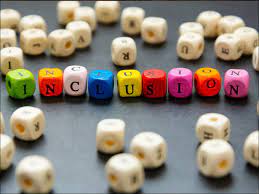Building bridges Role of educational and awareness campaigns…

The Hijra community holds a very beautiful and important place in the fabric of indian society. Their legacy goes back to ancient times, where transgender people, intersex people and hijras were adopted by a vibrant social group. Throughout history, they were revered and revered and given special roles in royal courts and cultural events. However, as the winds of change blew and colonial rule came to india, social attitudes towards the Hijra community changed and they were marginalized and stigmatised. In three centuries of colonial rule, we pushed them out of the fringes, took away their basic rights and denied them countless opportunities.
In the modern era, a strong movement has emerged for recognition and rights on behalf of the Hijra community in India. A historic moment came in 2014 when the supreme court of india officially recognized Hijras as a 'third gender'. This unprecedented decision marked an important step towards protecting their legal rights and ensuring their safety. According to the 2011 census, there are 4.88 lakh transgender persons in india, of whom 55,000 are children. Each one of them has a lot to give to the country, to the family and to himself. But they can't do that if we stand in the way of meeting their most basic needs.
As the Swachh Bharat Mission has shown, access to toilets can be life-changing. It gives us dignity. It protects and makes our communities healthier. And then, the Hijra community is forced into our narrow, gendered toilets where they are exposed to humiliation at best and physical violence at worst. Yes, we need to build toilets. But we also need to build a bridge to a more accepting and inclusive society through educational and awareness campaigns. Only in such an environment can we guarantee that we are all safe, that we are all connected and that we are all empowered to achieve our full potential



 click and follow Indiaherald WhatsApp channel
click and follow Indiaherald WhatsApp channel